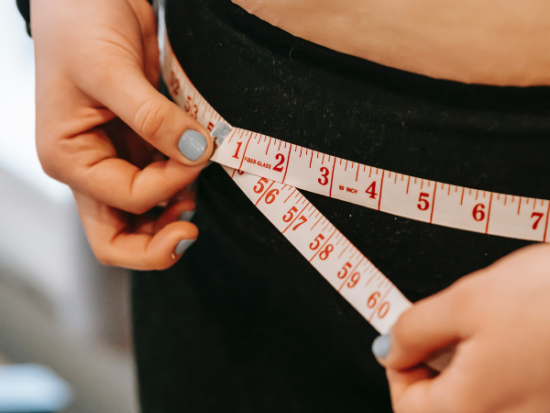Keto and intermittent fasting
The Keto diet and intermittent fasting are two prevalent health trends today. Many people are trying out one of these diets to see if they work.
Both of these diets have been proven to work. Now the question remains between keto and intermittent fasting, can you combine the two?
Some dieters think that combining the two diets would help them lose weight faster. We will break down each of these diets and show you the pros and cons of combining the two.
Keto Diet

The Ketogenic diet is a diet that is high in proteins and fats. This diet does, however, restrict your carb intake daily. Your meals would contain about 70% fat. There would be very low carbs and medium protein in your meals.
The daily total carb intake is less than 50 grams. This amount forces the body to use fats and no sugar as your body’s source of energy. Ketosis is the state when your body breaks down fats to form ketones. These ketones serve as fuel for your body.
The Keto diet was developed to help people with short-term weight loss. There are several other benefits to the diet as well.
Many doctors have used the Keto diet to treat their patients that have neurological disorders. Many children with epilepsy have been treated with the keto diet too.
Related Articles
Top 5 CBD Gummies on Amazon
How Many Calories Are in a Pound?
Calorie Deficit Diet – What to Know
What does the Keto diet do?
It helps reduce blood sugar levels, reduce the risk of heart disease, improve your insulin resistance, and help control your triglyceride levels. The ketogenic diet has also been used to help improve the mental symptoms of patients who have Alzheimer’s disease.
Intermittent Fasting
Intermittent fasting is a diet or an eating method that cycles between restricting calories, fasting, and average food consumption. This diet has helped many obese adults lose a lot of weight and keep it off.
There are several different types of intermittent fasting. Some of the routines include the 5:2 method, the warrior diet, alternate-day fasting, and the 16/8 method.
The 16/8 method is the most popular. This is when you are eating during an eight-hour time range. Then you will fast for 16 hours.
In intermittent fasting, the fasting technique is used to help you lose weight. The food cycles allow the body to use the fact that it has and burns it faster.
This will, in turn, speed up the weight loss, and your body fat mass will improve. This type of fasting helps with weight management, and it gives you many health benefits too.
Intermittent fasting helps with what?
Intermittent fasting helps reduce the risk of heart disease. It can improve your brain functions and help you live longer too. Intermittent fasting can slow down conditions such as type 2 diabetes, cancer, and even aging.
Some people think about intermittent fasting but are scared away because they believe it may be risky to their health. Don’t worry. However, intermittent fasting gives more benefits than it causes issues.
In the long term, intermittent fasting can benefit the body, and it detoxes as well. Intermittent fasting is not an eating disorder, and there are not many harmful side effects from fasting.
For most people, fasting is perfectly safe for the body. It detoxes the body, and it is constructive in cleaning your body for the best. Humans can go for hours without food. For many years, people have been fasting for long periods.
The New England Journal of Medicine discusses how intermittent fasting improves stress resistance, blood pressure, inflammation, and tissue growth and plasticity. During the fasting state, triglycerides are broken down into fatty acids. These fatty acids are used for energy.
Related Articles: Best Cleanse for a Healthier Body
Benefits of Intermittent Fasting
The benefits of intermittent fasting improve your heart rate, blood pressure, glucose control, and abdominal fat loss. There has also been researching on intermittent fasting and aging. The studies show that this type of fasting can increase your total life span.
Fasting has been a way that humans could ration food. These days people fast for better health and use fasting as a diet plan. Intermittent fasting has been proven to be sustainable by the human body, and the health benefits are endless. The risks are there, but they are constrained.
Keto and Intermittent Fasting Can you Combine the Two?
If you are thinking of doing both of these diets at once to lose more weight, please consider some things. Is it safe for keto and intermittent fasting and combining the two diets?
When you are following the keto diet, you are eating foods that are high in fats. The keto diet is getting you to use ketones for your energy. Intermittent fasting means that you go without food for a certain number of fasting days or hours.
When you combine these two diets, there are pros and cons, just as with any diet. Your appetite is reduced, and intermittent fasting can be easier this way.
You may lose weight faster with both diets. However, it is not advised to combine the two. Some studies have shown that weight loss from intermittent fasting and keto combined may not be better for you.
The keto diet puts a restriction on carbs. Fasting depletes glycogen levels, and combining these two diets is a speedy way to ketosis. This will cause the keto flu to show up.
Pros and Cons
Those are some pros. Here are some cons to combining the keto diet and intermittent fasting. The keto diet can be unhealthy if it is done wrong. Intermittent fasting cannot undo the keto diet if done incorrectly.
The keto diet is not meant to be cheese, eggs, or bacon; these are saturated fats that are not good for you. The keto stays away from saturated fats. The keto diet should be unsaturated fats from avocados, nuts, and olive oils. This helps decrease LDL cholesterol.
The keto diet and intermittent fasting, can you combine the two if you are an athlete? Combining the keto diet and intermittent fasting can affect an athlete’s performance.
Intermittent fasting can reduce fat stores and preserve muscle, but the lack of carbs can affect athlete’s performances. Carbs are fuels for athletes, and taking that fuel away could cause bad results all around.
Related Article: How to Slow Heart Rate
Combining the Keto diet and Intermittent fasting is not the best idea.
If you want to start one of these diets, it is advised to stick with only one of them. Intermittent fasting has fewer risks.
The Keto diet has been dangerous for those who have type 1 or 2 diabetes. Blood sugar and insulin regulation are significant, and diabetics can cause strange side effects.
Some of these side effects are fatigue, brain fog, dehydration, bad breath, flu-like symptoms known as the “keto-flu.” The combining of both the diets is not an easy one. There are several constraints when it comes to these two diets together.
For keto dieters, they have shallow carb limits. Many people are unable to stick to the low-carb diet in the long term. Adding intermittent fasting to the mix can be too much for them as far as time goes. Once this happens, the diet can discourage you and make you go back to your regular eating routine.
Summary
To sum it all up, the Ketogenic diet and intermittent fasting are both two trending diets. Both of them offer several benefits and help people lose weight. Some people want to know if the keto diet and intermittent fasting can be combined.
Some of the benefits are short-term unless you have the discipline to stick with it throughout. For the most part, the combination of the diets is safe.
However, if you have a condition such as heart disease or diabetes, contact your doctor before you begin either diet. Just because it is safe to combine both the Keto diet and intermittent fasting, keep in mind that these two may not work for you or everyone. We all react differently to diets, and our bodies are different.
Many people doing the keto diet have a hard time fasting, and the opposite effects have occurred. Combining the two diets may cause irritability, overeating, and more fatigue.
If you follow a keto diet, this may be just what you need to lose the weight needed to be healthier. Yes, combining them will help you lose fat quickly, but the result may end up with you gaining it back from overeating.
We suggest talking to your primary care physician to get advice on which one is better for you. Good luck on your weight loss journey.





